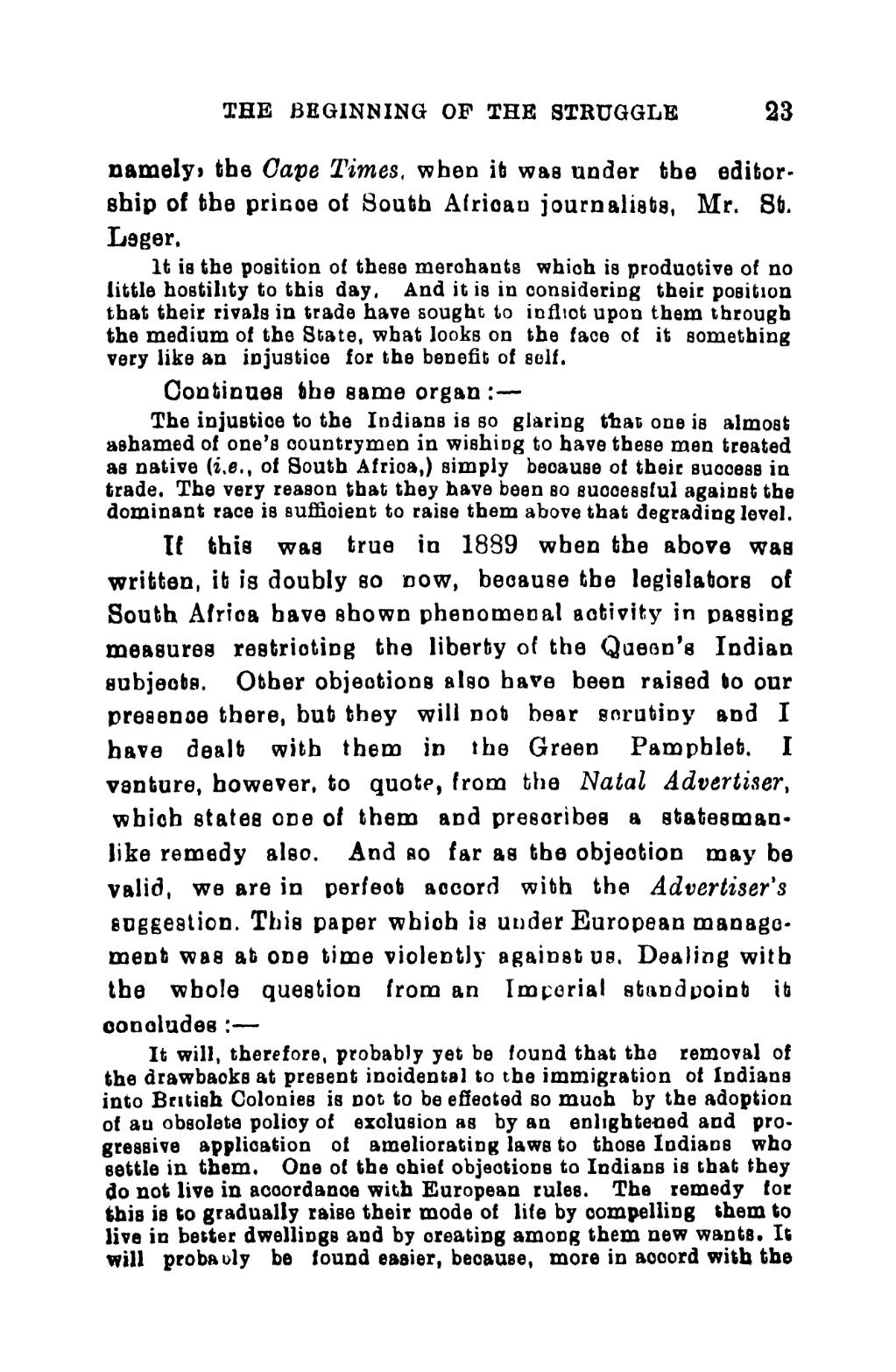namely* the Cape Times, when it was under the editor- ship of the prinoe of South African journalists, Mr. St. Lager,
It is the position of these merchants which is productive of no little hostility to this day, And it is in considering theic position that their rivals in trade have sought to inflict upon them through the medium of the State, what looks on the face of it something very like an injustice for the benefit of self.
Continues the same organ :
The injustice to the Indians is so glaring that one is almost ashamed of one's countrymen in wishing to have these men treated as native (i.e., of South Africa,) simply because of their success in trade. The very reason that they have been so successful against the dominant race is sufficient to raise them above that degrading level.
If this was true in 1869 when the above was written, it is doubly so now, because the legislators of South Africa have shown phenomenal activity in passing measures restricting the liberty of the Quean's Indian subjects. Other objections also have been raised to our presence there, but they will not bear scrutiny and I have dealt with them in the Green Pamphlet. I venture, however, to quofcp, from the Natal Advertiser, which states one of them and prescribes a statesman- like remedy also. And ao far as the objection may be valid, we are in perfect accord with the Advertiser's suggestion. This paper which is under European manage- ment was at one time violently against us. Dealing with the whole question from an Imperial standpoint it concludes :
It will, therefore, probably yet be found that the removal of the drawbacks at present incidental to the immigration of Indians into British Colonies is not to be effected so much by the adoption of an obsolete policy of exclusion as by an enlightened and pro- gressive application of ameliorating laws to those Indians who settle in them. One of the chief objections to Indians is that they do not live in accordance with European rules. The remedy for this is to gradually raise their mode of life by compelling (hem to live in better dwellings and by creating among them new wants. It will probaoly be found easier, because, more in accord with the
�� �
